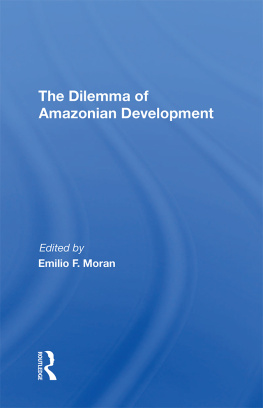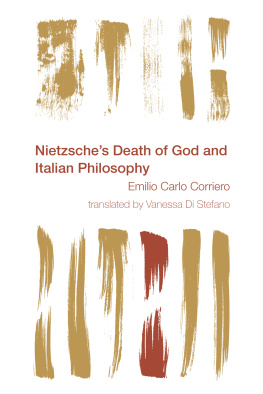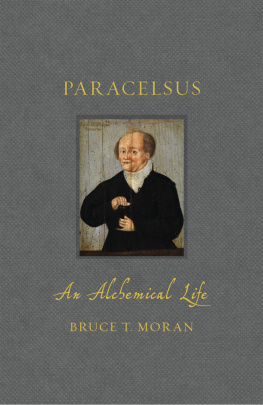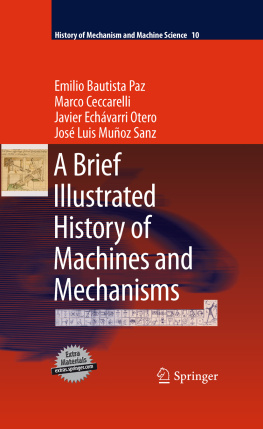TO THE MEMORY OF PROFESSOR JULIAN STEWARD
AAAS Selected Symposia Series
First published 1984 by Westview Press
Published 2019 by Routledge
52 Vanderbilt Avenue, New York, NY 10017
2 Park Square, Milton Park, Abingdon, Oxon OX14 4RN
Routledge is an imprint of the Taylor & Francis Group, an informa business
Copyright 1984 by the American Association for the Advancement of Science
All rights reserved. No part of this book may be reprinted or reproduced or utilised in any form or by any electronic, mechanical, or other means, now known or hereafter invented, including photocopying and recording, or in any information storage or retrieval system, without permission in writing from the publishers.
Notice:
Product or corporate names may be trademarks or registered trademarks, and are used only for identification and explanation without intent to infringe.
Library of Congress Catalog Card Number: 83-51458
ISBN 13: 978-0-367-29163-1 (hbk)
About the Book
Critics of the ecosystem concept have noted the tendency of ecosystem-based studies to overemphasize energy flow, to rely on functionalist assumptions, to neglect historical and evolutionary factors, and to overlook the role of individuals as the locus of natural selection and decision making. In this volume, leading figures in the study of biological and human ecology evaluate these criticisms and propose ways to advance the state of knowledge in ecological research.
Most of the authors agree that the ecosystem concept has been a useful heuristic tool in conceptualizing the unity of physical abiotic and biotic systems, in promoting detailed quantitative data collection on a broad array of system components and relationships, and as a framework within which to test hypotheses on people/habitat relationships. Less valuable has been the use of the ecosystem as a spatial unit or as a unit whose behavior and evolution can be meaningfully analyzed in anthropology using shorthand methods such as energy-flow and nutrient cycling studies. Finally, the authors examine the loss of explanatory value when the ecosystem concept is applied to human systems, which are better dealt with by theoretical approaches in which microlevel phenomena can be more easily incorporated.
About the Series
The AAAS Selected Symposia Series was begun in 1977 to provide a means for more permanently recording and more widely disseminating some of the valuable material which is discussed at the AAAS Annual National Meetings. The volumes in this Series are based on symposia held at the Meetings which address topics of current and continuing significance, both within and among the sciences, and in the areas in which science and technology impact on public policy. The Series format is designed to provide for rapid dissemination of information, so the papers are not typeset but are reproduced directly from the camera-copy submitted by the authors. The papers are organized and edited by the symposium arrangers who then become the editors of the various volumes. Most papers published in this Series are original contributions which have not been previously published, although in some cases additional papers from other sources have been added by an editor to provide a more comprehensive view of a particular topic. Symposia may be reports of new research or reviews of established work, particularly work of an interdisciplinary nature, since the AAAS Annual Meetings typically embrace the full range of the sciences and their societal implications.
WILLIAM D. CAREY
Executive Officer
American Association for
the Advancement of Science
Emilio F. Moran is associate professor and chairman of the department of Anthropology and associate professor in the School for Public and Environmental Affairs at Indiana University at Bloomington. A specialist in ecological anthropology, resource management, and agricultural development, he has written on human adaptation and processes of change through time in the humid tropics. His books include Human Adaptability (Duxbury, 1979; reprinted by Westview, 1982), Developing the Amazon (Indiana University Press, 1981), and The Dilemma of Amazonian Development (Westview, 1982) .
John W. Adams is associate professor of anthropology at the University of South Carolina, Columbia. A social anthropologist with a particular interest in the demographic factors of social organization, he has done research on the Northwest Coast Indians and on New England from 16201850. He is the author of The Gitksan Potlatch (Holt, Rinehart and Winston) .
Daniel G. Bates, professor and chairman of the Department of Anthropology at Hunter College, City University of New York, has specialized in ecological and economic anthropology and has done field research in Africa and the Middle East. He is the author of Nomads and Farmers: The Yoruk of Southeastern Turkey (University of Michigan, 1971) and Peoples and Cultures of the Middle East (with A. Rassam; Prentice-Hall, 1982). He edited Contemporary Anthropology: An Anthology (with S. Lees; Knopf, 1979) and currently serves as coeditor, with Susan H. Lees, of the journal Human Ecology.
John W. Bennett, professor of anthropology at Washington University in St. Louis, Missouri, has specialized in economic and ecological anthropology. He has published on anthropological theory and methodology, agricultural decisionmaking and rural development, Third World development, cooperatives, Japanese society and modernization, and aspects of American culture. His books include Northern Plainsmen (Aldine, 1969) , The Ecological Transition (Pergamon, 1976), and Of Time and the Enterprise (University of Minnesota Press, 1982) .
Francis Paine Conant is professor of anthropology at Hunter College, City University of New York. His major fieldwork has been in West and East Africa where he studied the subsistence and settlement systems of farming and herding peoples. His specialization is ecological anthropology, including the application of remote sensing data (aerial photography as well as satellite digital data) to the study of resource utilization in the African sahel. He has published on anthropological method and theory as well as religion, kinship, community types, and the division of labor by gender in African societies .
Neville Dyson-Hudson, professor of anthropology at the State University of New York, Binghamton, has done research on food production systems and structure and infrastructure in primitive society in East Africa. Among his publications are Karimojong Politics (Clarendon, 1966) and Perspectives on Nomadism (edited with W. Irons; Leiden, 1972) .
Rada Dyson-Hudson is associate professor of anthropology at Cornell University. A specialist in ecology, evolutionary biology, and human ecology, she has done research on East African pastoralism and social stratification, human territoriality, and land degradation. Recently she edited Rethinking Adaptation (with M. A. Little; Westview, 1983).










